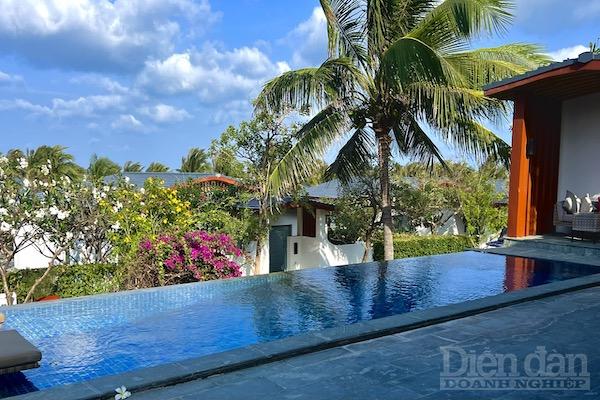"Thawing" the Resort Real Estate Market
This is a period when resort real estate developers and investors must make significant efforts to provide innovative experiences and goods that match the genuine demands of their clients.

Real estate businesses need to strive to bring products closer to the real needs of customers. Photo: VA
Mr. Tran Quoc Dung, Vice Chairman of the Vietnam Real Estate Association (VNREA), told Business Forum Magazine that the tourist industry and the innovation of real estate (RE) enterprises are likely to make 2024 a better year for the resort real estate market.
- Mr. Dung, why, despite many supportive policies, was the resort real estate market still bleak in 2023?
In 2023, the whole real estate market faced a decline, not just one section. Despite favorable indications from policy mechanisms and a decreased trend in bank interest rates, many RE projects had to be halted due to legal problems, planning changes, and credit constraints...
And the legal system remains a big impediment. Even Decree 10, which was intended to serve as a catalyst for the recovery of resort real estate by streamlining the issue of ownership certificates, confronts several implementation problems that necessitate more decisive action.
- Many resort real estate projects witnessed large inventories last year. Is there any solution to boost liquidity in this segment, Sir?
Clearing big stockpiles does not happen quickly; it takes time and careful collaboration from all stakeholders, including the government and various ministries, developers, and investors.
We may classify present RE inventories into two types: First, consider future items and initiatives that developers are preparing for execution. Second, there are current items that are either in the process of being finished or have already been completed but are unsold.
This is a moment when organizations and developers must make substantial efforts to provide fresh experiences and products that satisfy the genuine demands of their customers.
For the first kind, now is a good opportunity for developers to change their business models, focus on end-user needs, highlight service quality and operational management, prioritize addressing customer complaints to enhance liquidity, and build a sustainable market. To do this, the government must also streamline administrative procedures and cut project document processing times.
For the second class, the majority of current projects in inventory are high-end. This is a significant problem that demands more work from all sides. From a commercial standpoint, the most viable alternative remains "reducing losses" or accepting fair profits to remove inventories. Alternatively, initiatives may need to be "repositioned" to better fit with the actual demands of end consumers.
Furthermore, on a macro level, the government need financial "levers" to assist homeowners, such as increasing loan eligibility and supporting interest rates for homebuyers. Furthermore, regulatory organizations must improve inspections and assessments of RE projects, particularly in the high-end, resort, and leisure sectors, to maintain supply-demand balance and avoid surplus inventory.
- With global tourism trends changing not only in Vietnam but also worldwide, how will this affect the recovery of the resort real estate market? Which segment will lead the market, Sir?
Resort real estate, unlike other housing categories, is inextricably related to tourism, therefore global tourist trends will undoubtedly have an influence on the market.
Based on research from approximately 28,000 visitors in 33 countries and territories, as well as data from Booking, the world's biggest booking app, the seven travel trends for 2024 all have a common theme: "custom experience." Experience, exploration of local cuisine, connecting resorts with healing, sustainable tourism, and respect for environment are all foundational characteristics that every project or developer may plan and implement to lead the market.
Furthermore, optimizing finances and luxury travel (A La Carte Affluencers) will be a major trend in coming years. Many travelers claim they would minimize needless spending and save the money for high-end holiday experiences like the wealthy.
According to the Booking survey, 66% of Vietnamese visitors are prepared to purchase day tickets to use the amenities at 5-star hotels rather than staying there to enjoy the services. This also shows that the high-end category is not as difficult to market as the mid-range or budget segments, but that any segment that best answers its consumers' needs has growth potential.
- Mr. Dung, how should real estate businesses adjust their products to better suit the new resort trends?
This is a moment when businesses and developers must work hard to offer new experiences and products that fulfill the demands of their customers. Aside from careful research and meticulous planning, businesses should use technology to provide individualized travel experiences to clients.
Choosing new locations with high investment and project development potential is particularly important for the long-term growth of resort developments.
- Thank you!








